It’s not easy living green, yet alone promoting it.
How many times have you heard about climate change? Deforestation? Pollution? It’s all over the news and internet and yet it seems like there still needs more to be done. More attention, more care, more action. It’s not easy living green yet alone promoting it. That’s why we asked some of our environmentalist friends to tell us the realities they face in fighting for Mother nature.
Social advocates themselves, Ryan Bestre, Jonas Marie “JM” Dumdum, and Maria Jaya Ariola are all for making the world a greener and better place.
What is an environmentalist? How do you define being one?
Ryan: Someone who is connected to the earth.
JM: A steward, teacher, and example of things of what that person sees around him/her. It does not just mean his immediate environment in terms of location, but also in terms of the inhabitants of his surrounding environments including people.
Maria: An environmentalist is the one who looks back and moves forward. We look back at where we came from—the Earth. We recognize that we can only move forward if we protect Our Mother, and its most vulnerable and oppressed children.
What is your advocacy and how do you promote it?
Ryan: I advocate for ecological agriculture and plant-based diets through #IamHampasLupa, contributing to climate action. We organize online and offline advocacy events, we work with different organizations, we engage and empower young people, and we participate in policy lobbying.

JM: I am a co-host of the Sustainarumble podcast, Resident Scientist for Salin PH, Youth 4 Sustainable Cities Ambassador for makesense Philippines and Advisory Board member for the science high school mentorship initiative SIDHI.

JM attending a conference to get global insights on sustainable change.
Maria: My advocacy is climate justice through an ecofeminist lens, protecting vulnerable communities from big corporations that violate their land, their coasts, and their mountains. The ones I have helped work on are campaigns against industries that have proposed to build coal-fired power plants and other forms of nonrenewable and irresponsible energy production in my beloved island of Negros.

Why did you choose to become an environmentalist?
Ryan: I feel like environmentalism is in my blood. I belong to the Ibaloi indigenous ethnic group and as most indigenous people are, they are more connected to the earth. Or maybe I just like trees and mountains, and the natural world. And we’re supposed to be stewards of God’s creation anyway, right?
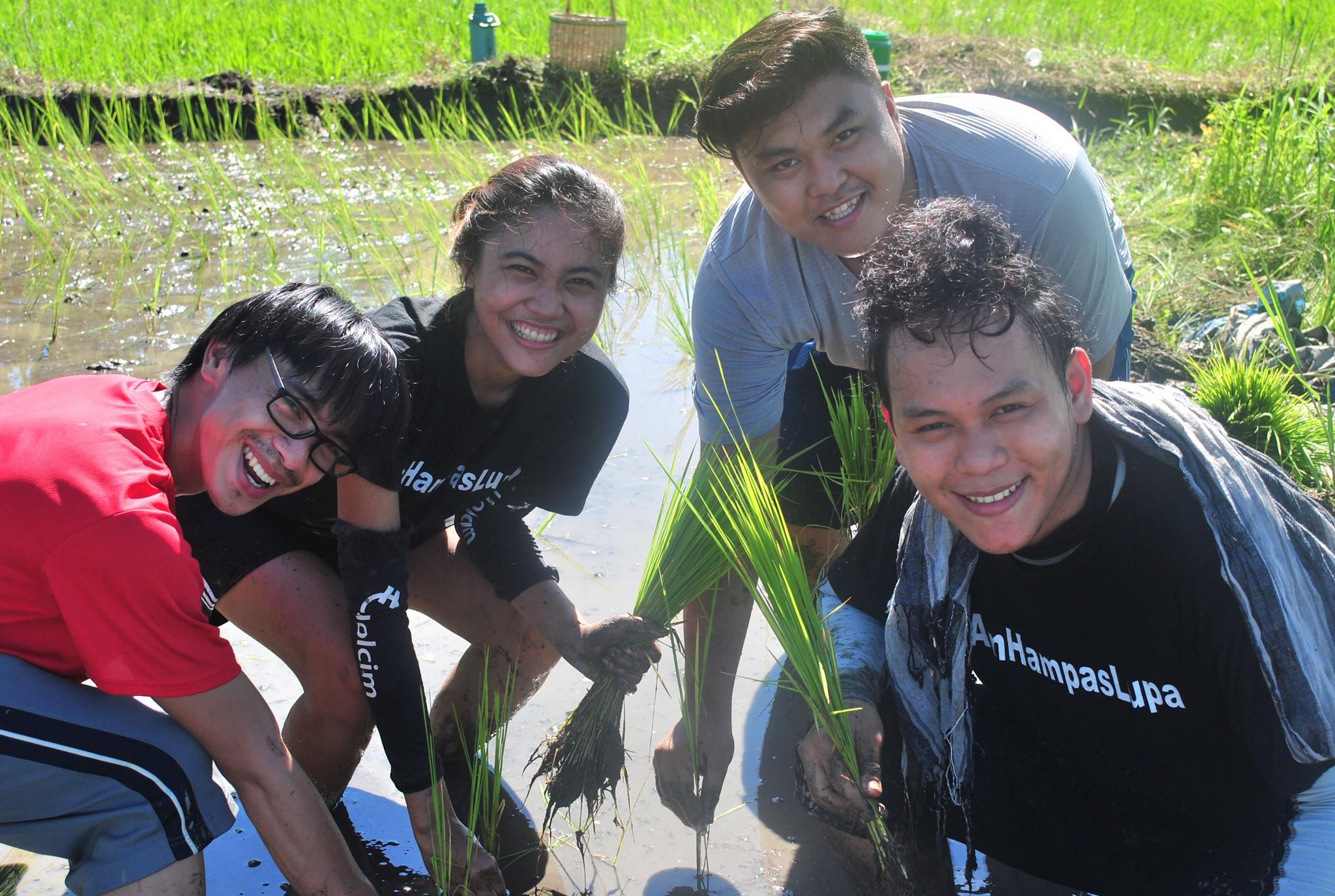
Ryan, leftmost, plants rice in support of the #IAmHampasLupa Ecological Agricultural Movement.
JM: Being an environmentalist did not dawn on me until I started taking my MSc in Renewable Energy and Resource Management at the University of South Wales in the UK, where a major part of the course touched on the environmental impacts of energy and materials. I realized that pursuing this field also meant to be a steward of the environment, because what we wanted to do is to move forward with society without destroying the environment.

JM posing outside University of South Wales, where he took up his Masters in Renewable Energy and Resource Management.
Maria: My parents have been part of non-government organizations for the environment and social justice. Ever since we were young, we were taught the principles that we live by now. We do our best to practice minimalism, proper management of our wastes, and being efficient with our use of water, electricity, etc. I realized I wanted to fight for a sustainable planet when I first climbed a mountain almost 4 years ago–in Mt. Mandalagan. I fell in love with the world, with my beloved Negros Island, seeing it around me and below me. I realized I would give all my life to protect something that gave me life, too.

What’s the struggle of being an environmentalist?
Ryan: Caring for the environment is not prioritized. It shows how disconnected we are to the planet. We need systemic change and that entails change in mindset and behavior which is difficult to achieve.

Ryan preaches the state of the Earth and the need to act upon climate change in an event.
JM: There are situations that are deemed very difficult to explain. For instance, not all plastics are recyclable or even reusable. Explaining this would require a high-level of effort, which may put off some people hence it becomes a challenge.

JM shares his thoughts on how to live a sustainable live in a speaking engagement.
Maria: The struggles of being an environmentalist is the constant frustration and helplessness: that no matter how much you do locally and influence people to make lifestyle changes, there are big corporations that are the real causes of the climate crisis. This is climate injustice, because countries who are least responsible and are poor suffer the worst effects of the climate crisis.

In promoting your advocacy, what challenges have you encountered during this pandemic?
Ryan: All of our activities are now done online. While this is less ideal, I see this as an opportunity of actually reaching more people. There are various webinars related to climate, environment, and sustainability and I welcome the chance of getting to speak in some of these events where I could further raise awareness on environmental issues and share my experiences.
Maria: In my few years of working with my fellow youth of Negros Occidental and Negros Oriental, I have a strong suit in planning for campaigns and strategizing creative ways for the campaigns to win– which involves meeting with people. However, this pandemic has caused us to stay inside our homes, and unstable internet connection is a huge barrier to community organizing and campaigning for environmental issues. The need for global cooperation must also be embraced more, and governments should coordinate with their people in tackling crises.
How can an environmentalist create impact during a pandemic?
JM: Be an investigator, a scientist, and an educator. An environmentalist must research multiple sources of data and information to pinpoint what is wrong with one location in the country not just due to COVID-19, but also other illnesses such as dengue or typhoid, or illnesses of plants and animals, because these could be solved by changing habits and improving their environment.
Maria: Mindfulness and education. We have to be more mindful and know where our resources– food, water, energy– come from. Due to the pandemic, people are experiencing financial instability and scarcity of food, and most of us rely on electricity because everything has shifted digitally. We have to learn how to be in commune with the Earth again: to grow food in our own backyards, to contribute to our community gardens, and to save more money by buying less. We need to read up on the causes of environmental degradation, and how we can both make changes individually and systemically.
How can we contribute to environmental sustainability during this pandemic?
Ryan: Educate yourself about environmental issues by taking advantage of learning opportunities widely available at this time. Use social media to raise awareness about these issues. And grow your own food; eat more fruits and veggies (it’s good for your health and the environment, too).
JM: Spread the word. Make everyone aware that as the world enters the new decade, we face even more environmental challenges. Make everyone aware that these will have interconnecting impacts that will shape not only their lives but also the lives of generations to come.
Maria: To organize a community, start with yours. Insert topics on environmental issues during dinner table conversations with your family, or invite your friends to conduct webinars on zero-waste, plant-based lifestyles, renewable energy, or climate justice. Write to your city officials regarding the Solid Waste Management Act, or sign petitions calling for coal-free provinces. It has become much harder to organize and mobilize during quarantine, but it is still possible on a smaller scale. This current coronavirus crisis, however horrible it may be, holds lessons for us to address another crisis– the climate crisis, but only if we put social justice and environmental conservation at the core of our strategies and plans.
Ryan Bestre is an environmentalist and a teacher. He is an alumnus of Teach for the Philippines and he is a campaigner of #IAmHampasLupa Ecological Agriculture Movement.
Jonas Marie “JM” Dumdum is an associate consultant for GCSS, a company that helps large companies in the Philippines with their sustainability initiatives.
Maria Jaya Ariola is currently an incoming 3rd year student at Siliman University. She is the chairperson of the Silliman University Student Government Students Rights and Welfare Committee, the Program Head of the Association of Young Environmental Journalists, and a founding member of Bacolod Youth Alliance. She and her friends have led successful campaigns against plastic pollution, forest exploitation, and coal-fired powerplants in Negros Island, while raising socio-political awareness in the youth.
Read also
-
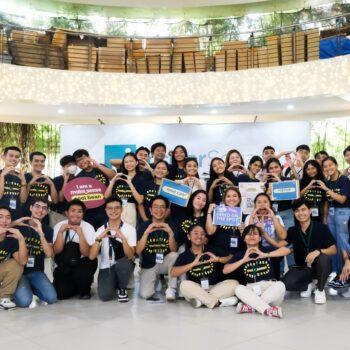 RISE For Youth Wins Award for Tackling Unemployment Among Filipino Youth
RISE For Youth Wins Award for Tackling Unemployment Among Filipino Youth -
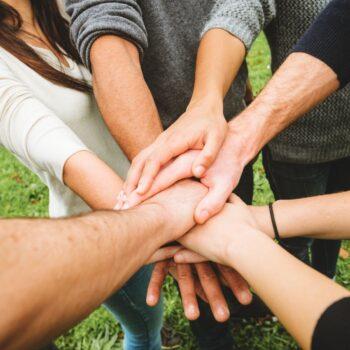 How Three Young Volunteers Help Their Generation Paint a Brighter Future
How Three Young Volunteers Help Their Generation Paint a Brighter Future -
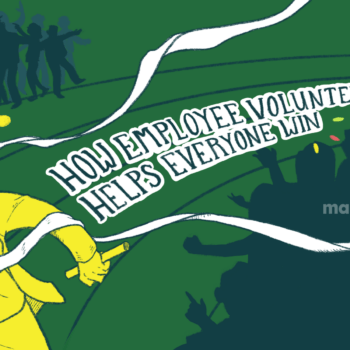 How Employee Volunteering Helps Everyone Win
How Employee Volunteering Helps Everyone Win -
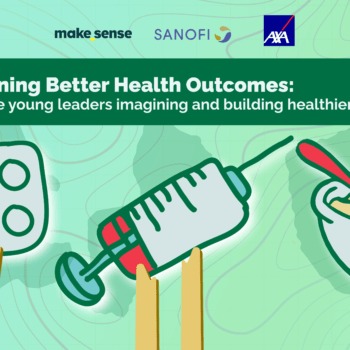 Imagining Better Health Outcomes: Meet the young leaders imagining and building healthier futures
Imagining Better Health Outcomes: Meet the young leaders imagining and building healthier futures -
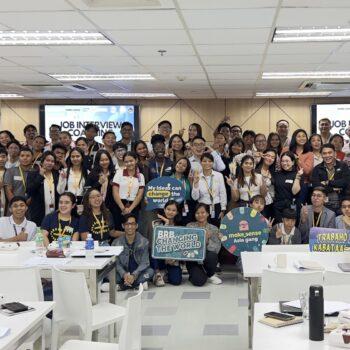 Designing CSR Programs That Actually Make a Difference
Designing CSR Programs That Actually Make a Difference
